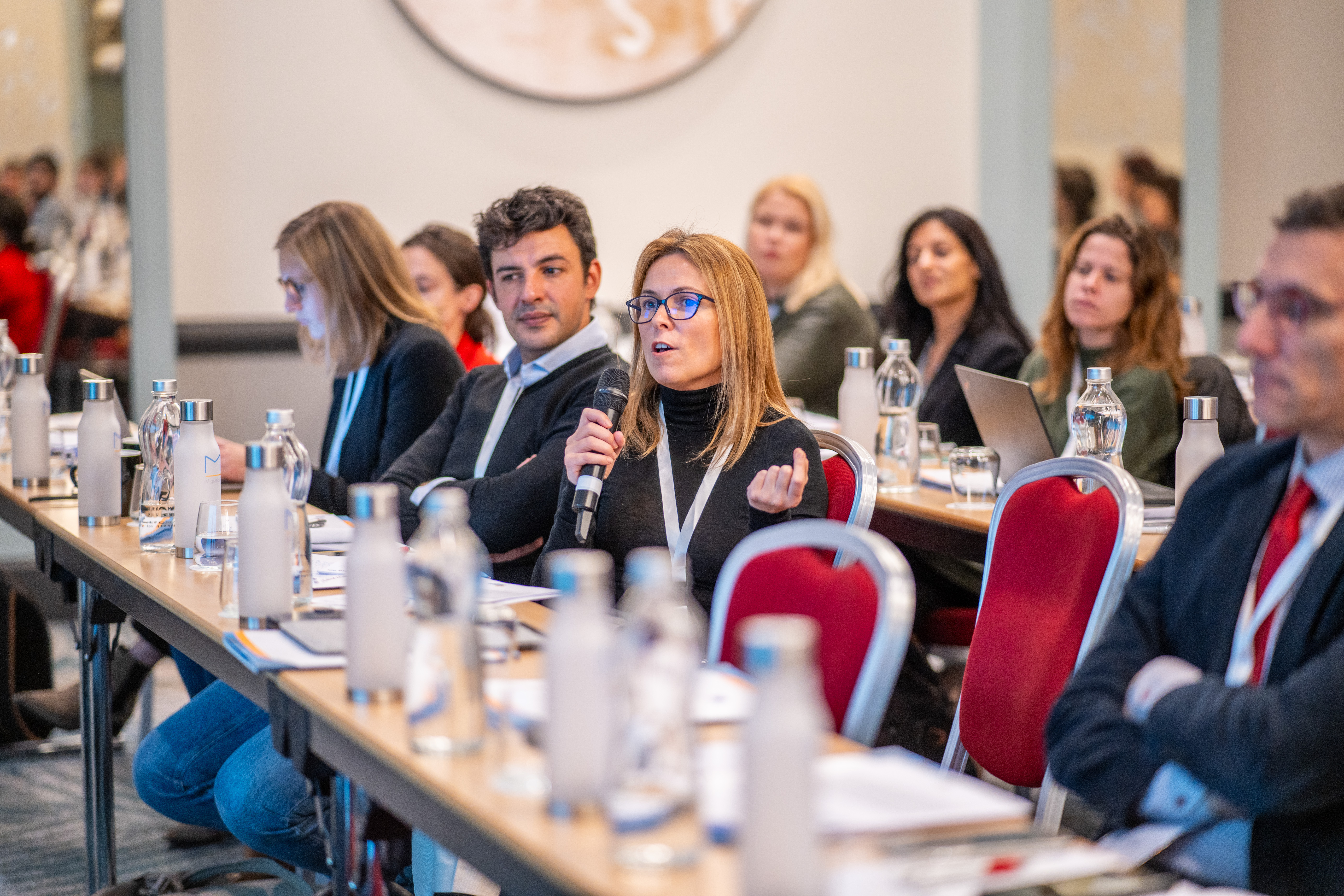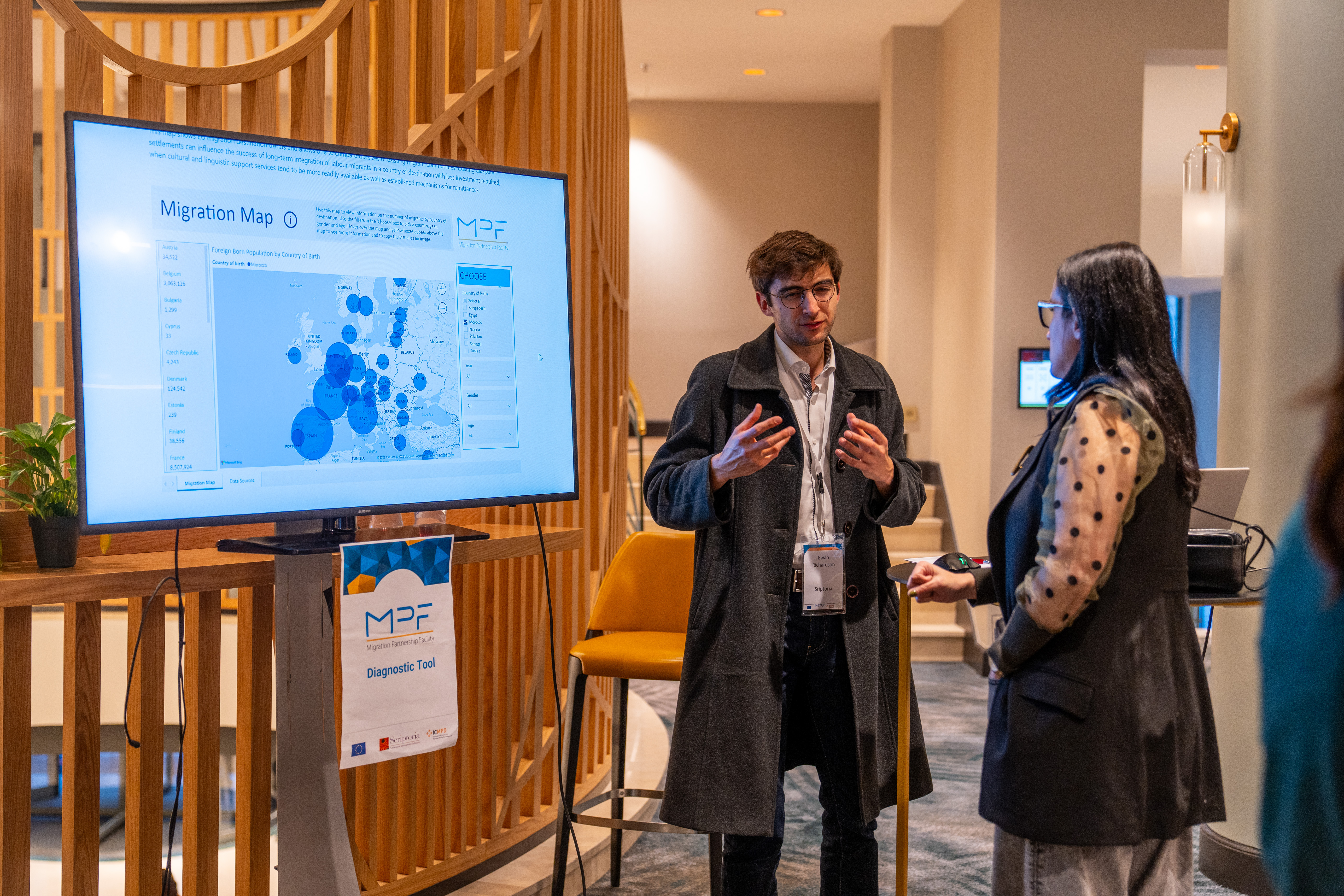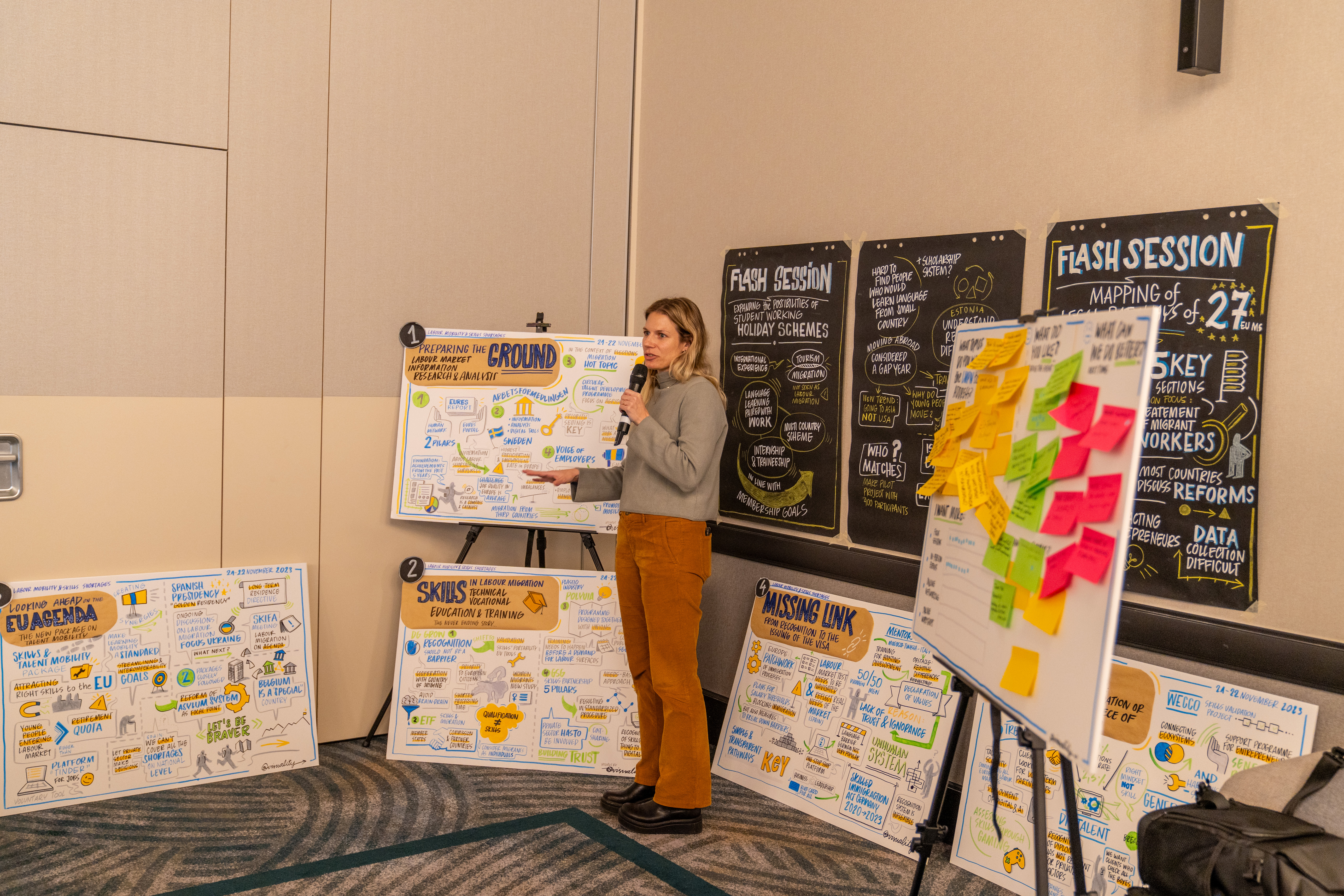On 21-22 November in Brussels, the Labour Mobility Practitioner’s Network (EU LMPN) organised its second In-person Conference in Brussels to discuss “Labour Mobility and Skills Shortages: Connecting the Dots”.
The event gathered members of the EU LMPN and speakers from different backgrounds such as EU institutions, international organisations, Member States, research organisations and the private sector. Representatives from MPF-funded EU pilot projects on labour mobility also attended the event to present their operational experiences with the implementation of mobility schemes with third countries.
The Conference took place at a key moment for exchanges on labour mobility and legal pathways: outcomes from the European Migration Network conference organised by the Spanish Presidency in Madrid in November and the new Skills and Mobility Package released days before the conference fed directly into the panel discussions. In the context of the EU Year of Skills, the event unpacked the whole process of recruiting foreign talent from labour market information research and identifying skills shortages, to recognition of qualifications, skills validation, visa processes and measuring the success of labour migration schemes. The final panel gave the audience insights from European Council presidencies into their priorities regarding legal and labour migration as well as a detailed presentation from DG HOME regarding the new Skills and Mobility Package.
Insights from labour mobility practitioners: the visa process
The EU LMPN has an operational focus and practitioners implementing EU-funded labour mobility schemes were invited to share their experiences on different panels of the conference.
Jean-Chaillet, Chief Operating Officer of Polyvia Formation, spoke about the lessons learnt from a French government-funded labour mobility initiative concerning 26 Tunisian nationals who acquired qualifications recognised in Tunisia and France to work in the plastics industry. In this project, the main challenge laid with obtaining visas: the process lasted 3 to 6 months, even with the promise of a permanent contract in France. For employers, especially SMEs, this timeline is impossible: if they invest in training, they need employees to get on board when needs arise in the company. With EU funding the project hopes to be able to scale up the initiative and train 800 people in 3 years and take the opportunity to foster long-needed improvements on the visa process.
Ms. Petra Mezzetti encountered similar challenges during the implementation of MENTOR 2, a project where highly skilled professionals from Morocco and Tunisia could engage in traineeships in Italian companies. In Italy, the visa system was (is?) hardcopy-based and long, and she found that local authorities lacked trust in and knowledge of third countries, which obstructed the visa process, even for short-term visas. She concurred with M. Chaillet that the discrepancy between public and private sector alignment, long visa processes versus immediate labour needs, was a real challenge for labour mobility as employers do not have the time for such procedures. This is where the EU funded projects often provide an interesting opportunity for practitioners to experiment with procedural improvements at small scale that would hopefully benefit larger groups of employers and candidates in the medium and long term.
Ms. Eva Slanco spoke about her experience recruit talents for Digi Talents, a labour mobility pilot project that brings ICT professionals from Moldova and Ukraine to Slovakia. She made the link between recognition of diplomas and visas: in the ICT sector, diplomas are not as important as skills validation and testing in the recruitment process. However, diplomas are necessary requirements for visa purposes where the process will be facilitated for master’s degrees graduates, which are generally not necessary to work in the ICT sector. Ms. Slanco called for more dialogue between employers and governments, as inappropriate degree requirements block employers from recruiting experienced professionals from abroad. She also spoke about unrealistic expectations that employers may have for their new recruits: despite valid competences, employees are rarely fully job ready on day 1.
This feeling was shared by many at the conference: employers need to invest in their workforce as they reap the benefits of skilled workers, whether they are EU nationals or recruited abroad. The labour market is changing, influenced by technological developments, such as AI and others. The skills workers need to perform evolve, and skills mismatch, which is already a problem EU-wide, must be prevented – this effort should be led jointly by employers, who must train their workers on the job, and governments through education opportunities.
Over 80 participants and speakers attended the conference. Besides panel discussions on all things skills and labour mobility, the conference provided interactive tools for participants to enjoy and further their knowledge: a live display of the Labour Mobility Partner Country Dashboards was available for participants to interact with and suggest improvements, and live graphic recording took place throughout the entire conference. Finally, LMPN members were able to provide feedback on the network through a board, which was presented in the closing session of the conference.

About the EU LMPN
The objective of the EU LMPN network is to promote deeper, more insightful, and sustained engagement on labour mobility by a set group of experts and practitioners. The network is open to practitioners from EU Member States and EU institutions at the operational level, relevant International Organisations, foundations, NGOs, think tanks or academic institutions, trade unions, private sector networks/bodies (such as employers’ associations) in relation to labour migration, diaspora organisations, and migrants’ associations.
Are you eligible and interested in joining the network? Register through this link. Not sure about your eligibility or you have questions about the network? Feel free to reach out at


